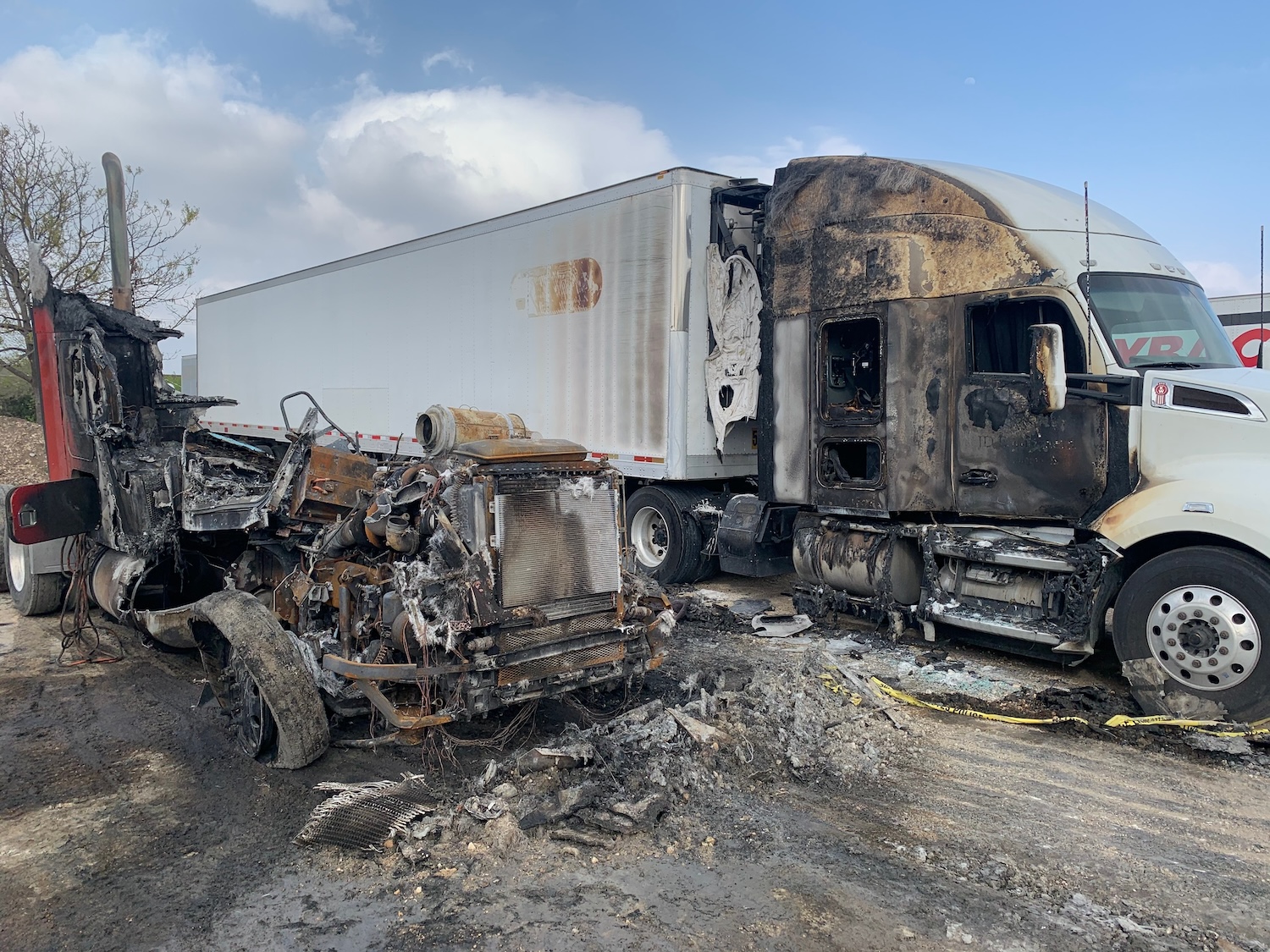Last Updated: April 9th, 2024
There were 166,521 large truck crashes and bus crashes in the United States in 2023, and Texas is home to more than its share. During that same year, There were 20,375 bus and truck accidents in Texas–more than 12% of the U.S. total. Texas’s share of truck wreck injuries and deaths was even higher: 14.4% of all truck accident injuries and 14.2% of fatalities.
Like any other type of motor vehicle accident, truck crashes happen in many different ways. Sometimes the truck driver is at fault, and sometimes the driver of another vehicle on the road is to blame. Sometimes, outside factors like road maintenance, debris in the road, or the actions of a driver not involved in the collision play a role. One common example is poor truck maintenance.

Negligent Truck Maintenance
When you operate a motor vehicle on Texas roads, you’re responsible for ensuring that the vehicle is in safe condition for those around you and their property. Of course, unexpected vehicle failures happen. But, if a crash happens because you didn’t properly maintain your vehicle, you may be liable for the accident and any damages it causes.
When a commercial motor vehicle like a large truck is involved, federal law imposes strict maintenance and inspection requirements. One requirement is that the driver must inspect the vehicle and document the inspection before and after every trip. Despite that requirement, and the required annual vehicle inspection, maintenance issues play a role in a significant number of big truck accidents.
Truck Maintenance Issues
A lot can go wrong with a large, complicated piece of machinery. The annual inspection report for commercial motor vehicles governed by the U.S. Department of Transportation (DOT) includes more than 50 points of inspection in 13 categories. Of course, not every piece of equipment plays an equal role in the safety of operating a vehicle.
Some examples of dangerous truck maintenance failures include:
Worn brake pads, drums or rotors: Even if brakes are still functioning, worn condition means it can take longer to slow and stop in an emergency.
Worn tires: A tire blowout can cause even a multi-axle vehicle to fishtail, depending on which tire it is. Even if the vehicle remains stable, tire remnants flying into traffic can cause serious accidents.
Lights out: Burned out or broken brake lights, turn signal lights and headlights can interfere with visibility and make it difficult for other vehicles on the road to predict a truck changing lanes, slowing, or taking other action that may require other drivers to adapt.
Faulty or poorly secured trailer hitch: A trailer that breaks loose in traffic can slam into another vehicle, or cause a collision between vehicles swerving or braking suddenly to avoid it.Steering or steering column issues: Faulty steering mechanisms can cause a truck driver to lose control in traffic, or limit their ability to respond quickly when evasive action is required.
Of course, this isn’t a complete list. Failure to maintain any operational or safety mechanism on or attached to a truck can cause or contribute to an accident.
Who is Responsible for Negligent Truck Maintenance?
When a large truck is involved in a crash due to faulty maintenance, the party responsible for maintenance may be liable for damages. Be aware, though, that it’s up to the plaintiff to prove that the vehicle wasn’t properly maintained. The injured party also has to show that the faulty maintenance was the cause–at least in part–of the accident. Important evidence can be lost when trucks are repaired and old parts disposed of, so you’ll want to consult an experienced Texas truck accident attorney as soon as possible after the accident.
Another reason truck accident cases can be complicated is that different parties may be responsible for maintenance issues. For example, federal law requires the truck driver to conduct inspections before and after each truck. But, most truck drivers aren’t mechanics. While they can make sure lights are working and check wear on tires and such, they aren’t conducting a full mechanical inspection.
Even if the problem is something the driver should have noticed or was aware of, they may or may not be personally responsible for the accident. That’s because employers are typically liable for the negligence of their employees in carrying out their jobs, but companies using independent contractors may not be.
Other parties who may be responsible when a mechanical failure causes a truck accident include:
-The party responsible for maintenance of the vehicle
-A maintenance provider that was negligent
-The manufacturer of a part, if the part was defective
-The supplier that provided a part, if the part was defective
-A cargo owner or other company, if they hooked up a trailer negligently or secured cargo improperly
Get the Help You Need after a Truck Accident
The I Just Got Hit (Godsey Law Firm, P.C.) team knows from experience how difficult it can be to navigate the legal system while dealing with trauma, physical injuries, financial stress and other effects of a truck accident. We also know how important it is that you get reliable information and guidance right away.
That’s why we offer free consultations to people who have been hurt in truck accidents and other motor vehicle accidents in Texas. It’s easy to get started–just fill out our contact form or click at the bottom right to chat.
What Our Clients Say
Our Team of Attorneys are Available 24/7
Our legal team, located in Dallas and Houston, understands the steps that need to be taken to help accident victims get their life back on track. We will stand by your side throughout the entire legal process, fighting the insurance companies and the negligent driver responsible in order to provide you the money and justice you deserve. Click or call us today to begin your case.








